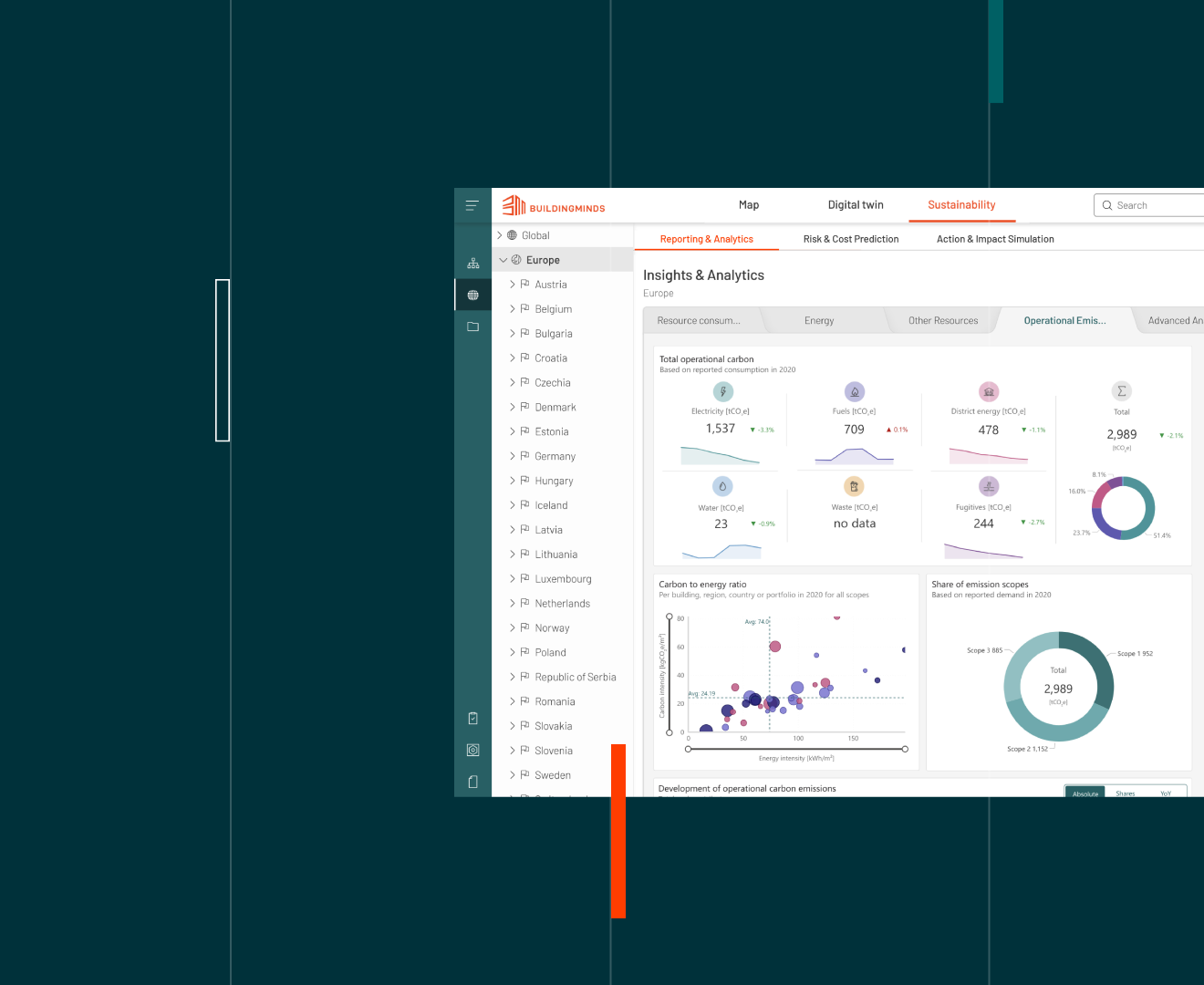How does PropTech deal with the Corona crisis

Jens Müller, CEO of BuildingMinds, gave Konii a very detailed description of how we at BuildingMinds are dealing with the Corona pandemic. Jens Müller speaks openly about the opportunities that arise for BuildingMinds.
What affects you now, which you thought impossible seven weeks ago?
If someone had told me seven weeks ago that we – and incidentally our business partners as well – were going to switch to home office from one day to the next, I probably wouldn’t have thought it possible. The challenge was not so much the technical infrastructure, but rather what it would do to our culture and team spirit. Of course, long-term effects can’t yet be assessed, but I would even say that our sense of unity has actually grown as a result. “Virtual Lunches” or our “Team Coffee Kitchen”, for example, ensure that the team also becomes personally networked beyond project work. The team has told us that this is happening even more because everyone feels more keenly how important informal, relaxed exchange is.
How does that affect your business activities in practice?
What particularly strikes me during this time is the contrast between our business model and everyday practice. While our projects deal exclusively with the digitalization of the real estate industry, project organization is often based on “analog pillars”. Personal meetings and workshops, which often involve travel, determine how a project is structured. The extraordinary situation compels us to digitize even faster – processes, infrastructure, methods and communication. It forces us all to rethink, to use digital tools really effectively and to network in earnest. This affects our processes and also the technical infrastructure. If you asked yourself beforehand whether your corporate culture is even ready for this kind of collaboration, you now have a clear answer.
What percentage of sales losses do you expect for 2020?
Since we are currently in the development phase with strong co-innovation partners, we are not too badly affected. The question will rather be whether this crisis will lead to digitalization being driven faster and with greater force or whether companies will tend to consolidate and postpone corresponding projects. Ultimately, it depends on the extent to which companies in the real estate industry are prepared to accelerate digital transformation despite the crisis, or even because of it.
Do you perceive your corporate goals for 2020 to be in danger?
My perception is that the companies that have digitization on their agenda are all the more focused on preparing for the future “afterwards”. So for us, the following applies: The digital factory does not stop, our product is being further developed and will even be sharpened by focusing during this exceptional situation.
Have you already adjusted your recruitment or postponed hiring?
No, but of course we are anticipating the impact of the crisis. Our philosophy is to recruit the best for the job from all over the world – we already have colleagues from 25 different countries on our team. At the moment, however, the willingness and opportunities to take on a new job or move to another country are understandably not too great. Our goal is therefore to digitize this process too, and to expand our team “remotely”.
Which expenses/budgets did you first earmark for disposal?
Of course, some savings in the form of event or travel costs are automatic. However, it would be fatal to cut back today on what can create real added value in the market tomorrow. Therefore, investments, for example in development, remain unaffected. We are sticking to our goal of introducing a common data model for the real estate industry this year.
What has the current situation taught you so far?
We recently conducted a Development Sprint Review involving 60 colleagues completely digitally via Microsoft teams – and not only did it run smoothly, it produced extremely good results. Experiences like this are encouraging! I can absolutely say that the much-cited agility is really being put into practice and that situations like this show how good the corporate culture actually is. Every individual, but especially we managers are learning more every day about how to maintain productivity and demand performance in an effective and motivating way.
Which decision will you make differently in the light of your new experiences?
As the old adage goes, “Leading means being able to let go” – and this is exactly what my leadership team and I are experiencing in this situation in a completely new and much more intensive way. We are being taught a daily lesson, in the best sense, to switch the function of our own role from management to real leadership. It’s about trust where there has long been competence, support where help is needed and encouragement where a voice needs to be heard – we all gain infinitely valuable experience here every day.
How does the crisis affect your product/service? Will you adapt/expand your product now?
Basically, our product is one that makes available the “physical asset” of the real estate / portfolio digitally, in the form of data-driven insights, everywhere and in the most diverse manifestations. Therefore, the crisis does not change the product, but in a certain way makes it even more meaningful and necessary.
What does the crisis mean for the digitalization of the real estate industry?
At the Expo Real I was told: “Mr. Müller, please let the chalice of digitalization pass our industry by. We earn good money from assets and their location and don’t need all the idle talk.” The fact that we cannot defend ourselves against this is, at just this moment, being made very clear to us. As a result of the crisis, the question of the digital infrastructure has gained enormously in importance; it is now the deciding factor between top or flop, and digitization has become a core survival strategy in many places. However, we are only now trying to overcome the actual crisis – together, on a large and small scale!
How do you think the crisis will fundamentally change working life?
It is now becoming much more apparent where physical processes can be improved or replaced by a digital infrastructure. What we have been doing with our partners in projects so far seems to be happening on a nearly global level – the physical is being digitally integrated and thus becoming part of a holistic ecosystem. Of course, culture and mindset are also changing. Digitized companies and processes are also reacting much more robustly to future challenges, which hopefully will not pose a threat to life and limb. Digitalization strengthens resilience!
You can read this article in German over at Konii.



